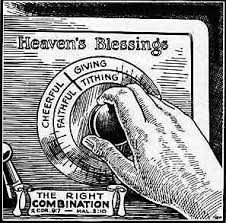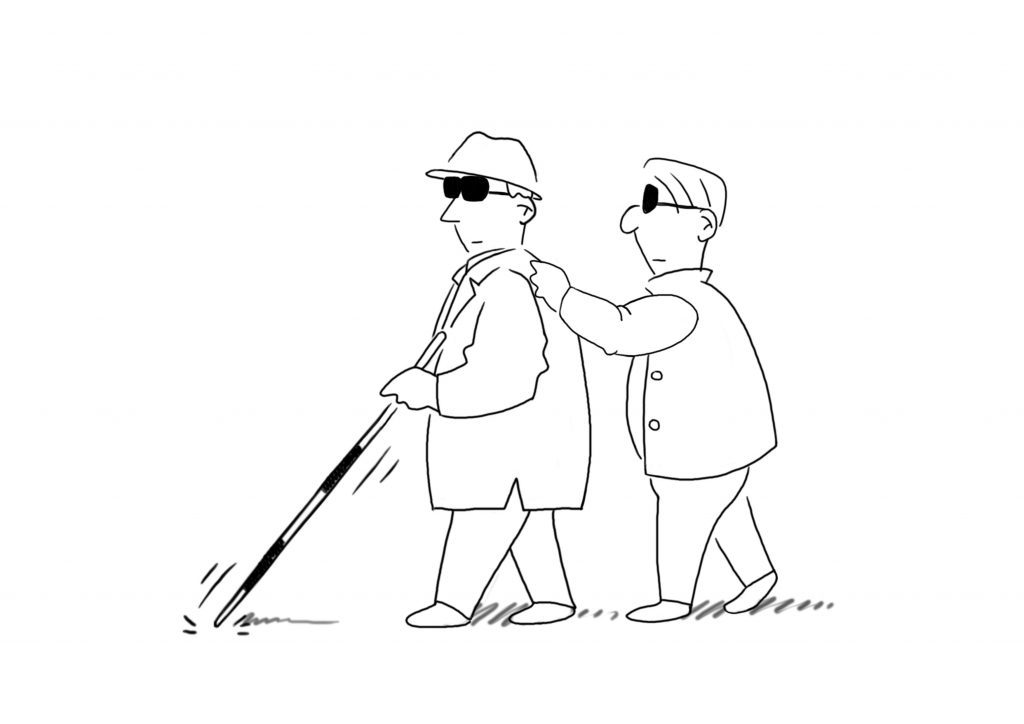I must say straight away that the header picture on this post should also have the hashtag #stuffjesusneversaid on it; it was from their Facebook page!
It certainly is something that Jesus never said! While on the subject, I must recommend the StuffJesusNeverSaid site for excellent lampooning of many modern christian concepts that indeed Jesus simply never said. Take a look sometime!
This article is a debunking piece on the modern concept of tithing.
Tithing was an Old Testament practice that was originally designed as a system by which the Israelites funded their priesthood and religious services; there were a few more reasons for it, but this was the main one.
Put simply, they gave a tenth of all their income, whether money, food, wine, oil, grain and what have you, to the priests.
 It has also been adopted by many in the modern Church as a way of funding the Church’s activities. Naturally, like all the Old Testament laws and stuff, though, it has of course in many churches been made into a legalistic system of oppression and guilt.
It has also been adopted by many in the modern Church as a way of funding the Church’s activities. Naturally, like all the Old Testament laws and stuff, though, it has of course in many churches been made into a legalistic system of oppression and guilt.
Many churches even try to make God’s blessings conditional on a person giving his tithe, as if they as mere humans can set limits on God’s goodness based on their system of Rules!
I probably don’t need to tell you where I stand on this issue….
I saw a brilliant exposition on the complete scriptural concept of tithing as described by one Moses S M Kawuma, in response to StuffJesusNeverSaid’s post on tithing involving the original picture at the top of my post, which is linked to at the bottom of this post. But first, let’s take a look at Moses’s exposition:
“Let us look at the period before the law was given, the period during the law and the period after the law.
BEFORE THE LAW (GENESIS 1 – EXODUS 20)
Abraham’s tithe of all to Melchizedek
If you read through Genesis 14, your discover some interesting things:
1. Abraham’s tithe of all to Melchizedek was voluntary (Gen 14 & Heb 7), not a commandment from God.
2. There was only one recorded event of Abraham ever tithing to Melchizedek (Gen 14:20 & Heb 7:6).
3. Abraham gave 10% of the spoils he had captured during a war, not 10% from his own possessions (Gen 14:16, Gen 14:20 & Heb 7:4).
4. Abraham gave the remaining 90% of the spoils back to the king of Sodom (Gen 14:21-24). He kept nothing back for himself!
Should Christians imitate Abraham?
If Christians are to imitate Abraham’s example, I suggest they fight with others, take their stuff, give 10% of that to the church, give the remaining 90% away and keep nothing for themselves.
Jacob’s Vow to God
Gen 28:20-22 KJV Jacob vowed a vow, saying, If God will be with me, and will keep me in this way that I go, and will give me bread to eat, and raiment to put on, So that I come again to my father’s house in peace; then shall the Lord be my God: And this stone, which I have set for a pillar, shall be God’s house: and of all that thou shalt give me I will surely give the tenth unto thee.
There is no biblical record of Jacob fulfilling his vow to God. Jacob’s promise to give the tenth to God of all God gives him is an example of a vow and is definitely not a model for Christians to follow.
Those are the only mentions of tithing before the law.
UNDER THE LAW (EXODUS 20 – JESUS’ DEATH ON THE CROSS IN MATTHEW 27, MARK 15, LUKE 23 & JOHN 19).
Under the law, Israel is to give God a tithe of all its crops, flocks, and herds (Lev 27:30-32). These tithes are received by the Levites for their sustenance; they in turn tithed from all that they have received (Num 18:25-32). Deuteronomy specifies a yearly tithe eaten by the worshipers (You never hear of this being preached!) and every three years a storehouse tithe to provide for the Levites, the strangers, the fatherless and the widows (Deu 14:22-29). Malachi warns against slackness in tithing (Mal 3:8-10). Similarly, Jesus condemns scribes and Pharisees for giving tithes but neglecting weightier matters of the law (Mat 23:23, Luk 11:42 & Luk 18:9-14) BUT Christians are dead to the law (Rom 7:4 & Gal 2:19), are not under the law (Rom 6:14-15 & Gal 3:25), are delivered from the law (Rom 7:6) and the law is not made for Christians (1Ti 1:8-10).
If Christians believe they are under the law, I suggest they follow all the 613 commandments of the law and stop cherry picking a few commandments they want to keep. It is all or nothing (Gal 3:10 KJV)!
AFTER THE LAW (JESUS’ RESURRECTION IN MATTHEW 28, MARK 16, LUKE 24 & JOHN 20 – PRESENT DAY)
Hebrews 7 is the only chapter after the cross that mentions tithing and below is a summary of Hebrews 7:1-10 KJV:
Verse 1 – Melchizedek met Abraham and blessed him.
Verse 2 – Abraham gave a tenth part of all to Melchizedek.
Verse 3 – Melchizedek, who is made like the Son of God, remains a priest continually.
Verse 4 – Abraham gave the tenth of the spoils to the great man, Melchizedek.
Verse 5 – The sons of Levi have a commandment to take tithes of the people according to the law.
Verse 6 – Melchizedek, who did not have Levitical ancestry, received tithes from Abraham and blessed him.
Verse 7 – The lesser (Abraham) is blessed by the better (Melchizedek).
Verse 8 – Here men that die receive tithes but there he receives them, of whom it is witnessed that he lives.
Verse 9 & 10 – Levi who receives tithes, paid tithes through Abraham because he was in Abraham’s loins when Melchizedek met him.
Which of the above verses are instructing Christians to tithe today?
Hebrews 7:8 is the only verse that can be used to try to teach that tithing is for Christians today. There is only one verse after the cross that seemingly makes some people believe in tithing today and so let’s check it out:
Heb 7:8 KJV Here men that die receive tithes; but there he receiveth them, of whom it is witnessed that he liveth.
Let us paraphrase Heb 7:8 it the way it is commonly interpreted:
Here (in today’s day and age, before and after the cross) men who die (full time paid ministers) receive tithes (from their church members); but there (in Heaven) he (Jesus Christ) receives them, of whom it is witnessed that he lives.
This is not the correct interpretation of this verse because if we consider the context of Hebrews 7, “Here men who die receive tithes” is referring to the Levites who received tithes from the Israelites for their temple service and “There he receives them, of whom it is witnessed that he lives” is talking about Melchizedek, who was a “type” of Christ.
Let us now paraphrase it taking into consideration the context of Hebrews 7:
Here (during the era of the Levitical priesthood) men who die (levites who were performing temple service) receive tithes (from those who were under the law); but there (during the era of Abraham, when he tithed to Melchizedek) he (Melchizedek) receives them, of whom it is witnessed that he lives.
The [Amplified Version] brings this out clearly:
Heb 7:8 AMP Furthermore, here in the Levitical priesthood tithes are received by men who are subject to death; while there in the case of Melchizedek, they are received by one of whom it is testified that he lives perpetually.
Do the words “RECEIVETH THEM” indicate a continuous receiving of tithes?
No, look at the verse below:
Heb 7:8 KJV Here men that die receive tithes; but there he RECEIVETH THEM, of whom it is witnessed that he liveth.
“RECEIVETH THEM” is in italics in the KJV because these words were just added by the translators and are not there in the original greek new testament. It should read “RECEIVED THEM” based on Genesis 14.
What did we learn about Abraham’s tithe? Abraham was not commanded by God to tithe to Melchizedek, Abraham did not tithe every month to Melchizedek, Abraham gave 10% of spoils to Melchizedek and Abraham did not keep the remaining 90% for himself.
Should Christians give 10% of their money to the church today because Abraham gave 10% of the spoils of war to Melchizedek before the law? Really? May I point out a few things? Sacrificing of animals, Circumcision and Polygamy were all practised before the law but I do not hear anybody at church insisting that we ought to be practising these things today.
The logic behind retelling Genesis 14 in Hebrews 7 is as follows:
1. Abraham represents Levi. Melchizedek represents Christ.
2. Abraham is lesser than Melchizedek. Levi is lesser than Christ.
3. The priest of the old covenant is lesser than the priest of the new covenant.
4. The new covenant is superior to the old covenant.
Hebrews 7 proves the superiority of the priesthood of Christ (which was after the order of Melchizedek) over the Levitical priesthood.
Under the new covenant, there is no verse instructing Christians to give tithes (10%) of all their money to the church. Christians can give 0.5% or 1% or 5% or 11% or 29% or 50% of their money or whatever they decide in their hearts to the church, it is entirely up to them:
2Co 9:7 KJV Every man according as he purposeth in his heart, so let him give; not grudgingly, or of necessity: for God loveth a cheerful giver.”
This is simply superb stuff and indeed mirrors my own ideas on the subject. I’m not going to tell you what/if/when I tithe, because that’s between me and God. But I will say that although I do not think the Bible is a book of Rules, I would like to point out to those who still like to think that they follow the Law with regard to tithing, that Deuteronomy 14:22-27 clearly states that the person tithing can in fact consume their tithe themselves. The only stipulation is that the tither rejoices and enjoys it. You won’t hear that preached from any pulpit!
My own take is of course that the believer is free to give whatever he wants, to whomever he wants, whenever he wants; freely, joyfully and without limit. God’s bounty is inexhaustible and we give from that bounty He has given us. You see the difference? Freedom-giving is giving from the heart out of true motivation from grace and freedom. Legalistic giving sucks all the joy out of it. Interestingly, when looking for a header picture about tithing for this article, I noted that virtually every picture I saw was related to legalistic giving, not Grace giving. It actually made me feel physically sick. (Try it yourself: Google ‘Tithing’ in Google Image Search and make sure you have a bucket to hand 😉 )
This was the worst:

…as if Christ has not already unlocked all of heaven’s blessings for us?! My goodness, how far some have fallen….
This is so far from the Gospel of freedom, Grace and joy that I feel like weeping for those trapped under its cage.
The phrase ‘By their fruits ye shall know them’ (Mt 7:16)? Joy is always the first fruit to disappear when the Law comes into action. It’s easy to distinguish whether Law or Grace is a person’s motivation by their joy level – not that we are to judge each other of course, but if you are going to listen to Christian teachers, make sure you are receiving from someone who is all about Grace, joy and freedom, rather than Law, misery and guilt. If someone’s emphasis is on what you have to do, do, do, rather than what Christ has already done, done, done, then you should run from that person’s teaching as they will only lead you into bondage. And this in no area more than that of tithing.
Everything that Jesus said, did, taught and lived was about Freedom. He set it out in His manifesto the first time He spoke in public in His home town:
“The Spirit of the Lord is on me,
because he has anointed me
to proclaim good news to the poor.
He has sent me to proclaim freedom for the prisoners
and recovery of sight for the blind,
to set the oppressed free,
to proclaim the year of the Lord’s favour.” (Lk 4:18-19)
Giving of any kind must flow from freedom. It’s what Jesus came to bring us; anything else falls way short of the mark!














